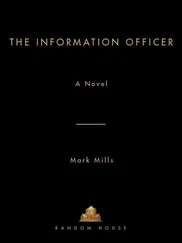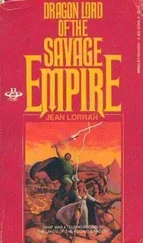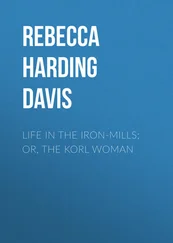Mark Mills - The Savage Garden
Здесь есть возможность читать онлайн «Mark Mills - The Savage Garden» — ознакомительный отрывок электронной книги совершенно бесплатно, а после прочтения отрывка купить полную версию. В некоторых случаях можно слушать аудио, скачать через торрент в формате fb2 и присутствует краткое содержание. Жанр: Старинная литература, на английском языке. Описание произведения, (предисловие) а так же отзывы посетителей доступны на портале библиотеки ЛибКат.
- Название:The Savage Garden
- Автор:
- Жанр:
- Год:неизвестен
- ISBN:нет данных
- Рейтинг книги:4 / 5. Голосов: 1
-
Избранное:Добавить в избранное
- Отзывы:
-
Ваша оценка:
- 80
- 1
- 2
- 3
- 4
- 5
The Savage Garden: краткое содержание, описание и аннотация
Предлагаем к чтению аннотацию, описание, краткое содержание или предисловие (зависит от того, что написал сам автор книги «The Savage Garden»). Если вы не нашли необходимую информацию о книге — напишите в комментариях, мы постараемся отыскать её.
The Savage Garden — читать онлайн ознакомительный отрывок
Ниже представлен текст книги, разбитый по страницам. Система сохранения места последней прочитанной страницы, позволяет с удобством читать онлайн бесплатно книгу «The Savage Garden», без необходимости каждый раз заново искать на чём Вы остановились. Поставьте закладку, и сможете в любой момент перейти на страницу, на которой закончили чтение.
Интервал:
Закладка:
"It is not right," said Chiara, stubbing out her cigarette and getting to her feet. "We have German friends. They will be at the party. It is an insult to them. It is not right. It is the past."
There was more that Adam wanted to ask, but he'd already shown an undue interest in the episode, cajoling her with questions, extracting from her the closest thing to an "official" account of the killing as he was ever likely to get. Somehow he couldn't see Maurizio being quite so forthcoming, not that he would ever have risked approaching him on the subject.
He accompanied Chiara outside onto the terrace, fleeing the fog of smoke that now filled the study. Amazingly, she immediately lit another cigarette before going in search of her husband and her mother-in-law.
Adam stood for a while at the balustrade, going over the conversation in his head, trying to make sense of it. He watched the workmen toiling away on the terraces below, and he saw just the place to call his thoughts to order.
The air in the chapel was surprisingly cool, almost damp. Alone this time, he surveyed the interior with a more critical eye. It was as plain and simple a place of worship as he'd ever been in. There were no false lines or proportions, no signs of excess—no writhing baroque baldachins bolted to the wall, no fussy frescoes or elaborate carvings. It was as if the building itself had shunned these things over the centuries, successive generations of Doccis somehow sensing its dislike of such frivolities.
Standing there, breathing the building in, he was left in no doubt that the same deft hand that had fashioned an imposing villa for Federico Docci had also shaped this little house of God.
He had done some research: Signora Docci had been right; almost nothing was known about the reputed architect of Villa Docci—Fulvio Montalto. He appeared to have been an apprentice to the Renaissance sculptor and architect Niccolo Tribolo. A letter in the Tribolo archives alluded to a meeting between Federico Docci and Fulvio Montalto—the master being absent—at which the plans for a new country residence were discussed. Maybe Tri- bolo had conceived the plans himself but, given his onerous workload at the time—he was overseeing the construction of the Boboli Gardens for Cosimo de' Medici—it seemed more likely that he had simply handed the commission to his young charge. Fulvio Montalto had more than repaid the confidence placed in him, and it was unfortunate that he had then vanished from the map.
Adam found his feet carrying him to the spot near the south wall where Emilio lay. He thought of him there, down in the dank, dark earth. What did a body look like in a coffin after fourteen years? Liquefied? Mummified? Had the walls of the coffin given way? Were his bones already mingling with the rich Tuscan soil?
He dumped himself on a nearby pew, dejected. He knew the reason for his mood; it had begun to settle on him the moment Chiara mentioned Gaetano the gardener's untimely arrival at the villa on the night of Emilio's murder. This one small statement had crushed the seed of Adam's suspicions underfoot.
Everything he'd concocted in his head over the past days sprang from Fausto's claim that Gaetano had been inconsistent, that he'd changed his story about his exact whereabouts at the moment of the killing. Well, of course he had. Who wouldn't have changed his story in his position? His sudden arrival on the top floor had distracted Emilio, enabling the German to lunge for his gun and open fire. Gaetano must have been devastated, Maurizio sympathetic. It was easy to imagine them presenting an altered version of events to the world in order to spare Gaetano's feelings, just as it was easy to imagine local gossipmongers like Fausto latching on to any inconsistencies in Gaetano's account and gleefully misinterpreting them.
It was clear to him now that he had brought a sinister conspiracy into being through a sheer act of will. He'd stretched the facts to fit his case and disregarded those that didn't—crimes he'd often been accused of in the past by Professor Leonard. Standing there before the altar, it also became clear to him why he'd allowed his imagination to run away with him. The memorial garden had denied him any further taste of intrigue, so he'd searched for it elsewhere— he'd manufactured it from his own frustration.
This recognition of his foolhardiness wasn't without its consolations. He was liberated, relieved of duties, no longer required to speculate about who and how and why, endlessly playing out imaginary scenarios in his mind, searching for the worst wherever he turned. He was free to enjoy the company of a man who had shown himself to be nothing but charming and civil.
Harry had always scrubbed up well, which was fortunate, because when Adam went to wake him before lunch he was sprawled facedown on top of the covers, still in his clothes. He was also dribbling. Remarkably, only twenty minutes later he sashayed onto the terrace fresh-faced, clean-shaven and sparkle-eyed. His hair even bore the traces of a halfhearted stab at a side-parting.
He arrived as the rest of them were taking their places at the table on the terrace.
"Hi, hello, I'm Harry." Maurizio and Chiara both seemed a little overwhelmed by the violence of the handshake, Signora Docci not entirely displeased with the kiss he planted on her cheek.
Chiara remarked on their close physical resemblance—the same dark coloring, the same jaw lines, same wide mouths.
"Adam hates it when people say that. He thinks he's better- looking—taller and better-looking."
"He is taller," said Maurizio.
"I slouch."
Harry straightened in his chair to make the point. Maurizio looked skeptical.
"Okay, I also have bandy little legs. But at least they're not skinny. You won't ever catch Adam in a pair of shorts like these."
"I can't deny it," said Adam, "I wouldn't be seen dead in a pair of shorts like those."
The laughter set the tone for the meal. It was a pleasant affair, the conversation tripping along quite merrily, until Signora Docci asked Harry what he had thought of Florence.
"Disappointing."
"Disappointing?"
"If I'm honest."
"Don't feel you have to be," said Adam.
Harry ignored him. "I don't know what I was expecting, something more romantic, I suppose. It's so bloody"—he searched for the word—"masculine."
"Masculine?" From Chiara, this time.
"Big, bold, brash . . . hard. I mean, take that cathedral. . ."
"The Duomo," said Adam tightly, meaning "Shut up right now."
"That's the one. Let's face it, it doesn't exactly have you reaching for a pen to scribble poetry."
Adam noticed that Maurizio was smiling. Signora Docci and Chiara bristled defensively.
"Many poets have written about Il Duomo," said Chiara.
"Short poems, right?"
Maurizio laughed, drawing a sharp look from his mother. "I know what Harry means," he said. "Florence is not like Siena, or Venice, or Padua. It is much more robust. I can imagine being disappointed."
It was unfortunate that Chiara retaliated with mention of Florence's unrivaled artistic heritage, because on that subject Harry showed even less diplomacy. He had found the art a bit of a letdown too.
"Really?" Signora Docci asked incredulously.
"A bit."
This proved to be something of an understatement. In Harry's humble opinion, the Renaissance marked a low point in the history of Western art. As with most of Harry's theories, the originality of the hypothesis coupled with his passionate conviction almost made up for the glaring flaws in his argument.
He didn't deny that the painters and sculptors of the Renaissance had made great leaps in terms of representational realism, but he questioned whether this was progress, whether it made for better art. You could argue—and he did—that medieval art, with its distortions and disproportions and stylizations, was more real because it wasn't trying to trick the eye. Renaissance art, on the other hand, was devotedly illusionistic. In fact, the illusion had almost become an end in itself. The technical prowess of faking a sense of depth on a flat picture plane or rendering a human figure with near-photographic precision sometimes seemed more important to the artists than the subjects themselves, than the higher, sacred purpose their works were intended to serve. With a few notable exceptions, much of what he'd seen in the galleries and museums of Florence had left him cold. One of the exceptions was Michelangelo's statue of David in the Accademia.
Читать дальшеИнтервал:
Закладка:
Похожие книги на «The Savage Garden»
Представляем Вашему вниманию похожие книги на «The Savage Garden» списком для выбора. Мы отобрали схожую по названию и смыслу литературу в надежде предоставить читателям больше вариантов отыскать новые, интересные, ещё непрочитанные произведения.
Обсуждение, отзывы о книге «The Savage Garden» и просто собственные мнения читателей. Оставьте ваши комментарии, напишите, что Вы думаете о произведении, его смысле или главных героях. Укажите что конкретно понравилось, а что нет, и почему Вы так считаете.











